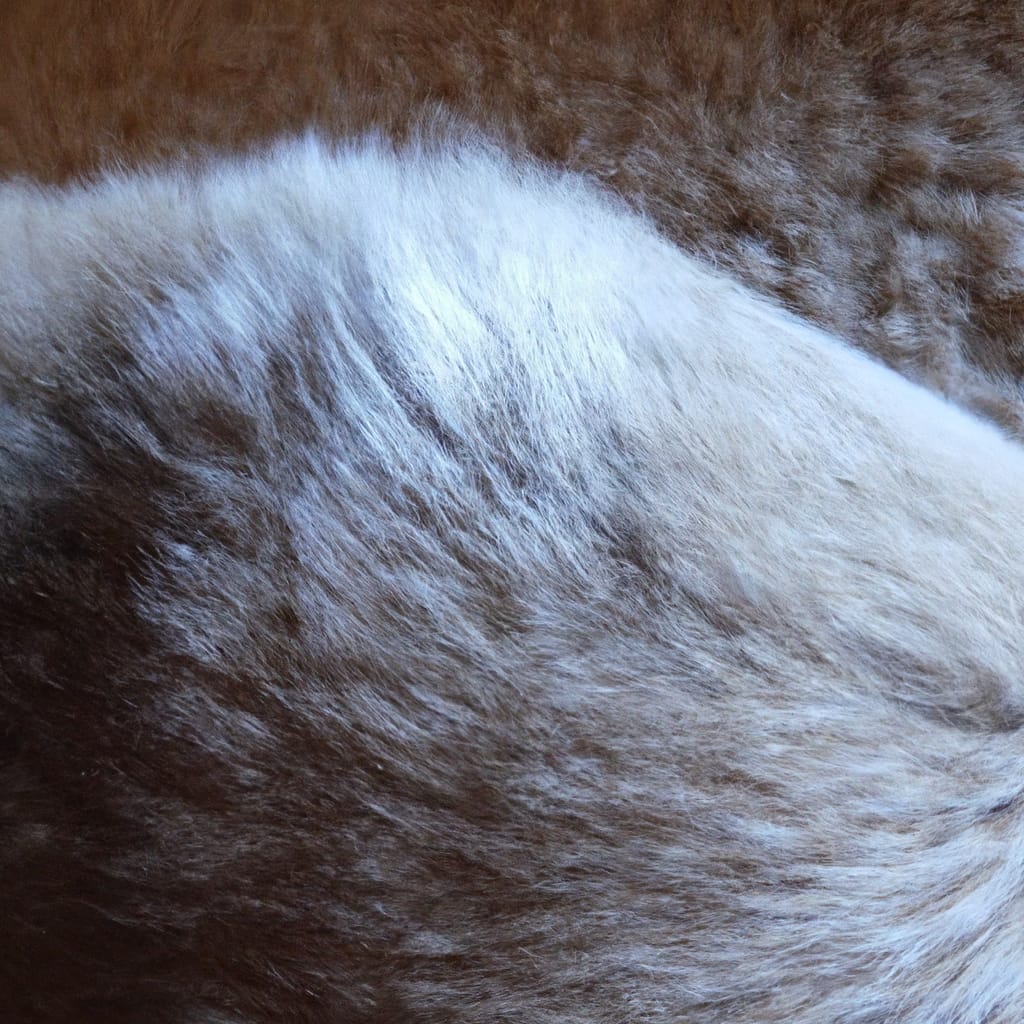How To Recognize The Signs Of Dog Kidney Stones And Treat Them Fast
If you’re a dog owner, it’s important to be aware of the potential health issues that can affect your furry companion. One condition that often goes undetected until it becomes severe is kidney stones. These small, rock-like formations can develop in your dog’s kidneys and cause discomfort and pain. Recognizing the signs of kidney stones early on is crucial in ensuring prompt treatment. In this article, we will explore the common symptoms of dog kidney stones and discuss effective methods for treating this condition quickly. By familiarizing yourself with these signs and taking immediate action, you can help your beloved pet alleviate their discomfort and maintain their overall health and well-being.

Signs of Dog Kidney Stones
Kidney stones can be a painful and uncomfortable condition for dogs. As a dog owner, it’s important to be aware of the signs that may indicate the presence of kidney stones in your furry friend. By recognizing these signs early on, you can seek the necessary medical attention and provide your dog with fast relief.
Changes in Urination
One of the first signs of dog kidney stones is changes in your pet’s urination habits. Keep an eye out for an increased frequency of urination. If you notice that your dog needs to relieve themselves more often than usual, it could be a sign of kidney stones. Additionally, your dog may experience straining or difficulty in urinating. If they seem to be struggling or displaying discomfort during the process, it’s essential to consult your veterinarian.
Cloudy or malodorous urine can also be an indication of kidney stones. If you notice any changes in the color or smell of your dog’s urine, it’s crucial to seek prompt medical attention.
Blood in Urine
The presence of blood in your dog’s urine is another sign that should raise concern. If you notice pink, red, or brown-colored urine, it could be an indication of kidney stones. Blood in the urine, also known as hematuria, can occur due to the irritation caused by the stones as they pass through the urinary tract. It’s important not to ignore this symptom, as it could signify a more serious underlying issue.
Frequent Urinary Tract Infections
Kidney stones can predispose dogs to frequent urinary tract infections (UTIs). If your dog experiences recurring UTIs, it may be a sign of the presence of kidney stones. Symptoms of UTIs include frequent urination, urgency, and discomfort during the process. Keep an eye out for any changes in your dog’s urinary habits and consult your veterinarian if you suspect a urinary tract infection.
Pain or Discomfort
Dogs with kidney stones may experience pain or discomfort. Pay attention to any signs of discomfort that your dog may display during urination. This can include whining or yelping when they urinate or restlessness and signs of discomfort afterwards. You may also notice a tender abdomen or back, which can indicate the presence of kidney stones. If you observe any of these signs, it’s vital to seek veterinary care.
Lethargy and Decreased Appetite
Kidney stones can cause generalized weakness and a lack of energy in dogs. If your typically active and vibrant dog suddenly becomes lethargic, it could be a symptom of kidney stones. Additionally, dogs with kidney stones may experience a decrease in appetite or display a reluctance to eat. This loss of appetite or decreased food intake can be a red flag that something is wrong.
Diagnostic Procedures
When it comes to diagnosing kidney stones in dogs, your veterinarian will perform various diagnostic procedures to determine the presence and severity of the condition. These procedures are essential for an accurate diagnosis and to develop an appropriate treatment plan for your furry companion.
Physical Examination
During a physical examination, your veterinarian will evaluate your dog’s overall health and look for any signs or symptoms that may suggest the presence of kidney stones. They will examine your dog’s abdomen for tenderness, check their back for any discomfort, and assess their overall demeanor.
Urinalysis
Urinalysis is a common diagnostic tool used to detect the presence of kidney stones in dogs. By analyzing your dog’s urine, the veterinarian can identify any abnormalities that may indicate the presence of stones. This includes checking for the presence of blood, pH levels, and the presence of crystals. Urinalysis provides important insights into the overall health of your dog’s urinary system.
Blood Tests
Blood tests are another diagnostic tool that can help detect kidney stones in dogs. These tests can assess various parameters, including kidney function and levels of substances that may indicate a problem. Blood tests provide valuable information about the overall health of your dog’s kidneys and their ability to filter waste products effectively.
X-rays
X-rays are commonly used to visualize the presence of kidney stones in dogs. These imaging studies allow the veterinarian to identify the size, shape, and location of the stones. X-rays can provide crucial information to determine the appropriate treatment approach and assess the severity of the condition. However, smaller stones or certain types of stones may not be visible on x-rays, requiring additional diagnostic methods.
Ultrasound
Ultrasound is a non-invasive imaging technique that uses sound waves to create images of the internal structures of the body, including the kidneys and urinary tract. Ultrasound can provide a detailed view of the size, shape, and location of the kidney stones. This diagnostic procedure can be especially useful in identifying smaller stones or if the presence of stones is suspected despite negative x-ray findings.
Treating Dog Kidney Stones
Once the presence of kidney stones is confirmed, your veterinarian will discuss the most appropriate treatment options for your dog. The treatment approach will depend on factors such as the size, number, and location of the stones, as well as your dog’s overall health.
Medication
In some cases, medication may be prescribed to help dissolve or manage the kidney stones. This approach is typically used for smaller stones that can pass through the urinary tract without causing significant obstruction. Medications can help increase urine flow, reduce inflammation, and prevent infections. However, it’s important to note that medication alone may not be effective for larger or more complex stones.
Water Therapy
Water therapy, also known as hydrotherapy, can be beneficial for dogs with kidney stones. Increasing your dog’s water intake can help flush out the stones and prevent the formation of new ones. Encouraging your dog to drink more water or providing wet food can help maintain hydration and promote urinary tract health. Your veterinarian may also recommend specific water additives or supplements to support kidney function.
Dietary Changes
Diet plays a crucial role in managing and preventing kidney stones in dogs. Your veterinarian may recommend a specialized diet that is tailored to your dog’s specific needs. These diets often aim to reduce the risk of stone formation by modifying the pH of the urine, controlling mineral levels, and promoting overall urinary tract health. It’s essential to follow your veterinarian’s dietary recommendations to effectively manage the condition.
Surgical Procedures
In some cases, surgical intervention may be necessary to remove or alleviate the presence of kidney stones. Surgical procedures can vary depending on the location and size of the stones. Your veterinarian will discuss the options available and determine the best course of action for your dog. The surgical approach may involve techniques such as lithotripsy (breaking the stones into smaller pieces for easier removal) or more invasive procedures to directly remove the stones.
Prevention Measures
While treating kidney stones is essential, prevention is always better than cure. By implementing these prevention measures, you can reduce the risk of kidney stones in your dog and promote their overall urinary tract health.
Hydration
Keeping your dog well-hydrated is crucial for preventing kidney stones. Ensure your dog has access to fresh and clean water at all times. If your pup is reluctant to drink, consider using a pet water fountain or adding water to their food to increase their fluid intake. Proper hydration promotes the flushing out of minerals and toxins, reducing the likelihood of stone formation.
Balanced Diet
Feeding your dog a balanced and nutritious diet is vital for their overall health, including their urinary tract. Consult with your veterinarian to determine the best diet for your dog’s specific needs. A diet that is low in certain minerals that contribute to stone formation, such as calcium or oxalate, can help reduce the risk of kidney stones. Additionally, incorporating urinary health supplements or specific prescription diets can aid in preventing stone formation.
Regular Exercise
Regular exercise is not only essential for your dog’s overall well-being but also plays a role in maintaining urinary tract health. Exercise helps stimulate urine production and encourages frequent urination, which can assist in flushing out any potential stone-forming substances. Engage your dog in daily physical activity, such as walks, playtime, or interactive games, to promote their urinary health.
Routine Veterinary Check-ups
Scheduling regular check-ups with your veterinarian is crucial for the early detection and prevention of kidney stones. During these visits, your veterinarian can assess your dog’s overall health and perform necessary diagnostic tests to monitor their urinary tract health. By detecting any potential issues early on, you can take proactive measures to prevent the development of kidney stones or address them promptly if they occur. Don’t hesitate to discuss any changes in your dog’s behavior or urinary habits with your veterinarian.
By recognizing the signs of dog kidney stones and seeking timely medical attention, you can ensure the well-being and comfort of your canine companion. Remember to engage in preventive measures, such as hydration, balanced diet, regular exercise, and routine veterinary check-ups, to minimize the risk of kidney stones in your beloved pet. Your veterinarian will guide you in developing an optimal treatment and prevention plan tailored to your dog’s specific needs. Prioritize your dog’s urinary tract health to provide them with a happy and healthy life.














